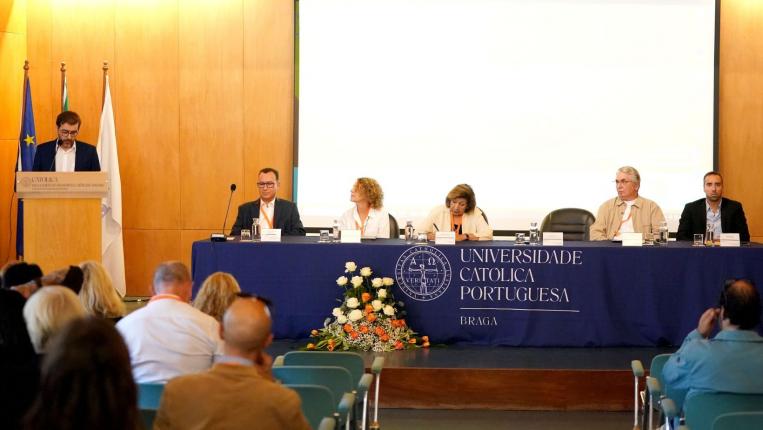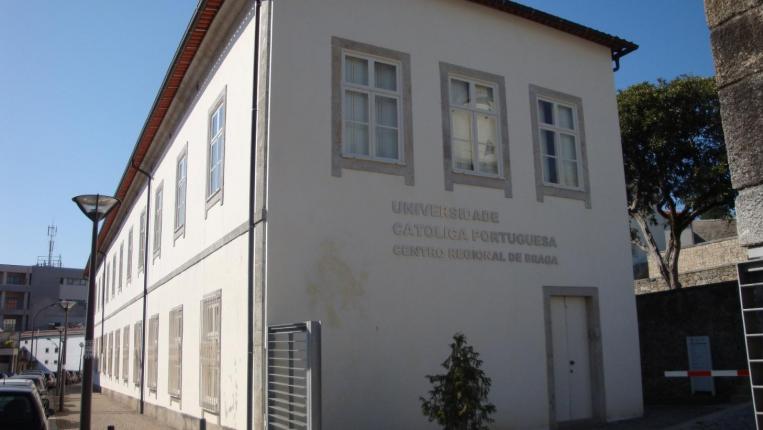Education in the city of Braga began around a thousand years ago and the first school in Braga is even older than the Cathedral. It was closely linked to the Cabido and its central mission was to train the clergy. The certainty comes from research carried out by historian José Marques, who places the ‘Escola Capitular’ as one of the oldest in the country. Without concrete data as to the precise date of its creation, the research produced by the priest from Braga - who died in 2021 at the age of 83 - shows that the school already had students in 1072 and was created in the early days of Archbishop Pedro's rule. Pedro, who led the Archdiocese between 1071 and 1096.
According to José Marques, ‘closely linked to the life of the chapter is that of its school [Escola Capitular], the creation of which was one of Bishop Pedro's first concerns’. Pedro’. The fact is that ‘if the chapter was to be the prelate's best assistant in his organisational, administrative and pastoral work, it was necessary to prepare a select group capable of perfectly ensuring future service,’ adds the researcher, He adds that ‘this objective began to materialise from the very beginning of his rule, since on 1 May 1072 there is already news of four students at the chapter school, designated as “illos puerulos Mito Viliamondiz, Onorico Viliamondiz, Ordonio Daludiz, Ordonio Eldebrediz”.
‘The creation of this school cannot be separated from the objective of contributing to the preparation of future clerics and senior officials for the government of the diocese. Almost seventeen years later, on 30 July 1099, two more students or ‘pueruli’ from the chapter school - Paio and Mido - appeared as witnesses in a donation made to D. Geraldo and the See, which indicates that they were young people of legal age to be able to testify,’ continues the research by the historian from Melgaço.
The research work, published in the Dictionary of Religious History of Portugal and later in the Encyclopaedia of Religious History in Portugal, also makes it known that ‘among the first four pupils of the capitular school of Braga, Honorico Viliamondes stands out, whose first known document of his authorship dates from 17.3.1075 - that is, less than three years after he was identified as a pupil - and who, on 24.6.1115, was still drawing up documents for the curia of Braga’.
‘These two extreme dates and many others in between allow us to affirm that Honorico Viliamondes or Guilhamondes - one of the first members of the capitular school of Braga - remained at the service of the restored diocese of Braga, exercising these functions in the respective scriptorium for at least 40 years,’ the research continues, to emphasise that ’there is news that on 29. 10.1165 and 22.3.1212, the candidates for the school of the see of Braga continued to be referred to in the documentation by the terms ‘puer’ and ‘pueri’, which proves that it continued’.
Faculty of Philosophy takes over the legacy of the Capitular School
What was Braga's first school began to decline two centuries later, due to the ‘harmful effects of the Black Death on the Braga chapter’ and the political implications of the dynastic crisis caused by the death of King Ferdinand. The teaching mission that had been taken on by the Capitular School would later be continued through the creation of the College of St Paul, which was now run by Jesuit priests, by decision of Bishop Bartolomeu dos Mártires.
With the creation of the Conciliar Seminary in 1572 and the establishment of a school of Theology in the Pópulo Convent, ‘Braga now had several educational institutions that were more modern and dynamic than the old chapter school,’ says José Marques.
It is also recognised that the school of the Chapter did not fail to inspire the creation of the Catholic University in Braga (UCP). The institution itself assumes this legacy in its note on the History of the Faculty of Philosophy and Social Sciences.
‘When in Italy, in the city that lends its name to the so-called Bologna Process, the university was created (1088), in the territory that would become Portugal there was already not a university, but a public school, with its own master, to teach the students who wanted to go to the School of the Chapter, nestled next to the Cathedral of Braga,’ says the publication from the UCP's Braga Regional Centre, assuming “that it is in the tradition of such a school, in the distant year of 1072 (or even earlier), that the Faculty of Philosophy and Social Sciences, as a natural continuation of the Faculty of Philosophy, is placed”. The historical review emphasises ‘that it was precisely this (Faculty of Philosophy) that was the first non-state higher education school to confer academic degrees of licentiate and doctorate in Portugal’.






